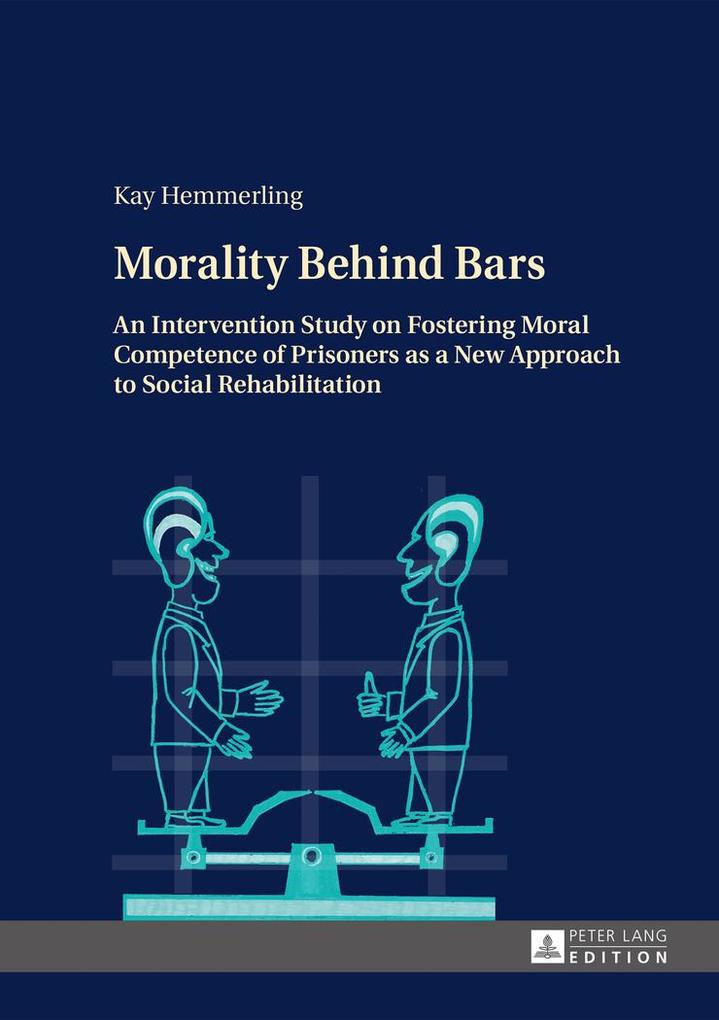
Zustellung: Mo, 07.07. - Do, 10.07.
Versand in 7 Tagen
VersandkostenfreiBestellen & in Filiale abholen:
In this experimentally designed intervention study the effects of prison and moral competence training were assessed using as criterion the Moral Competence Test (MCT, formerly called MJT). Whereas the moral competence of prisoners mostly regressed over time, an increase could be recorded in the prisoners who participated in a series of three KMDD-sessions.
Prisoners prefer moral ideals like justice and responsibility just as much as non-prisoners. However, they lack moral competence, which Georg Lind has defined as the ability to solve conflicts through deliberation and communication rather than through violence, deceit and power. The data of this experimentally designed intervention study show that imprisonment mostly makes things worse. It leads to a regression of moral competence. Further, these data show that - with appropriate training methods like the Konstanz Method of Dilemma Discussion (KMDD) - moral competence can be effectively and sustainably fostered. The KMDD lets participants learn to solve stressful morally dilemmatic moments with mutual respect, thinking and discussion - the keys to a non-delinquent life in society.
Inhaltsverzeichnis
Contents: Fostering moral competence, an experimentally designed intervention study with comparison groups Measurement with the Moral Competence Test Considerable increase of moral competence through Konstanz Method sessions Regression of moral competence in prisoners without treatment.
Jetzt reinlesen: Inhaltsverzeichnis(pdf)Produktdetails
Erscheinungsdatum
15. August 2014
Sprache
englisch
Auflage
1. Auflage
Seitenanzahl
166
Autor/Autorin
Kay Hemmerling
Verlag/Hersteller
Produktart
gebunden
Gewicht
335 g
Größe (L/B/H)
216/153/14 mm
ISBN
9783631618301
Entdecken Sie mehr
Pressestimmen
«One could hardly find a better book than this one to raise the efficiency of offender rehabilitation with a moral method like this.» (Prof. Dr. Shaogang Yang, Chinese moral psychologist)
«The research of Kay Hemmerling is an absolutely innovative approach: It combines professional competences from several scientific disciplines (cognitive development, moral psychology, educational research, «Diskursethik», law, criminology, sociology etc.) We already use his findings to implement the KMDD in Social Rehabilitation System of Poland.» (Prof. Dr. Ewa Nowak, chair of Ethics at the University of Pozna )
«The message of this book is: We can prevent criminal behavior by fostering delinquents moral competence through adequate methods and adequately trained teachers for this method. Let us begin.» (Prof. Dr. Georg Lind, KMDD-Trainer)
«The research of Kay Hemmerling is an absolutely innovative approach: It combines professional competences from several scientific disciplines (cognitive development, moral psychology, educational research, «Diskursethik», law, criminology, sociology etc.) We already use his findings to implement the KMDD in Social Rehabilitation System of Poland.» (Prof. Dr. Ewa Nowak, chair of Ethics at the University of Pozna )
«The message of this book is: We can prevent criminal behavior by fostering delinquents moral competence through adequate methods and adequately trained teachers for this method. Let us begin.» (Prof. Dr. Georg Lind, KMDD-Trainer)
Bewertungen
0 Bewertungen
Es wurden noch keine Bewertungen abgegeben. Schreiben Sie die erste Bewertung zu "Morality Behind Bars" und helfen Sie damit anderen bei der Kaufentscheidung.










